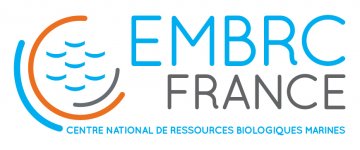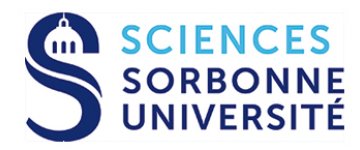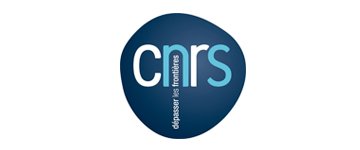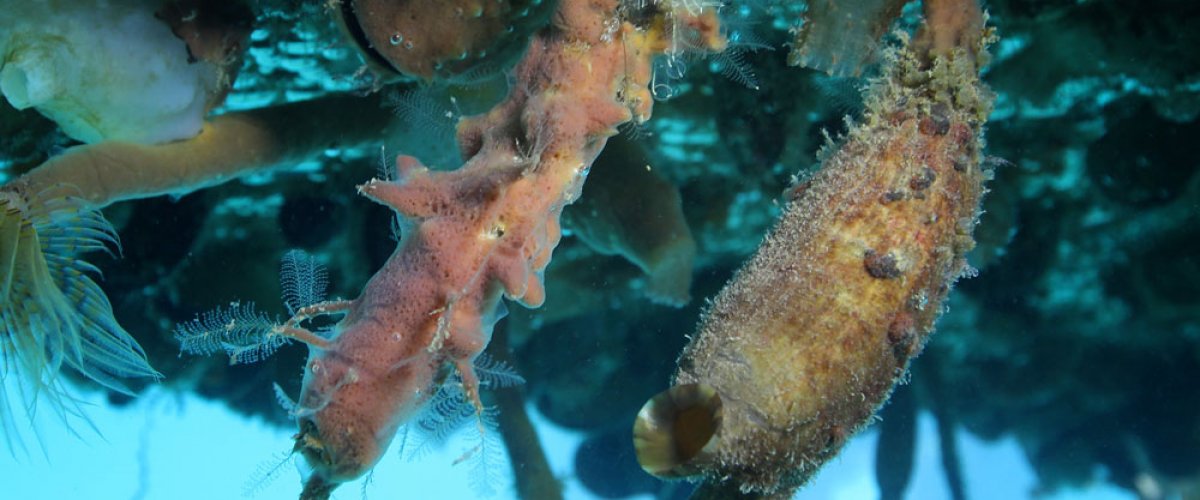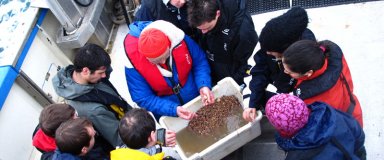Taxonomy of Marine Fauna : 5-28 August 2024 - APPLICATION NOW OPEN
Marine Biodiversity - Fauna expertise 5-28 august
Objectives
Link(s)
Biodiversity of Marine Fauna is a Master’s-level course in Marine Biology that primarily aims to teach taxonomy of marine animals for the identification of the typical coastal habitat species in their natural environment. This course naturally includes the biology and ecology of marine animal species in relationship to their habitat.
The course revolves around a number of field outings to various types of coastal habitat, accessible at low tide, and during which in situ observations, surveys and sampling are carried out. Sampled species are then observed under the dissecting or optical microscopes back at the laboratory to identify and apply the biological and taxonomic criteria presented during lectures. Students work independently on taxonomic identification and gain practice in using identification keys.
The observation of organisms both in the field and in the laboratory encourages a deductive approach to understanding organisms’ lifestyles and their adaptations to their environment.
From the lectures combined with field and lab work, students build up a sound knowledge base on
- systematics and the recognition of phyla and families of the most typical marine animal species found on the Roscoff coasts, and methods for determining marine animals to the species level;
- morphological and functional adaptations related to the lifestyles of coastal and nearshore organisms;
- the main types of coastal and nearshore environments along with their typical species composition.
During the summer course, lectures are also given by professionals from environmental associations who work in coastal natural reserves. These talks provide the opportunity for students to meet professionals from outside the academic setting who use taxonomy for biodiversity surveys. In addition, a visit to the Roscoff fish auction will provide a glimpse of the regional fishing industry.
Link(s)
Topics addressed in the course:
- Introduction to systematics: phylogeny and taxonomy
- Features of the main groups of marine metazoans (polychaetes, molluscs, crustaceans, echinoderms, sponges, hydrozoans, bryozoans, chordates), including
- Anatomical body plan of the phylum and/or the main taxa
- Systematic criteria that identify the taxa by OTUs (Operational Taxonomic Units)
- Morphological and functional adaptations of species, with regard to their natural environment and their vertical zonation
- Lifestyles and their adapted major functions (respiration, nutrition, locomotion and reproduction)
- Tides and vertical zonation of communities
Practical fieldwork:
Exploration of various types of coastal environments of the English Channel and the Atlantic Ocean to demonstrate
- high- and low-shore levels of rocky habitats ;
- sandy and sandy/muddy shores;
- exposed shore;
- seagrass beds.
Observation of habitats:
Nature of the biotope, exposure, dominant species, characteristic species, rare species and ecological features.
Practical laboratories:
- Observations of live material and demonstration of body plans of characteristic coastal taxa
- Practice in using species identification keys
- Practice in preparing slides necessary for identifying certain species
Independent study:
Independent study and presentation of an analysis of a biotope and its characteristic species conducted by small groups of students; analysis is based solely on field outings, samples in the field and observations and analyses in the lab.
After passing a final examination on effectively acquired knowledge, a certificate is issued to attest to participation and successful completion of the course. Succes at the final exam unable the participant to validate 9 ECTS
The course is accredited by some Doctoral School.
The course instructors are Research Lecturers, specialised in marine invertebrates, who have extensive teaching experience in marine biodiversity in coastal and nearshore environments. They include
Lecturers from the organising University Sorbonne Université who are based at the SBR:
Ann Andersen ( Zoology and Ecophysiology of Marine Invertebrates)
Annabelle Dairain (Benthic Ecology)
François Lallier (Zoology and Ecophysiology of Marine Invertebrates)
Pascal Riera ( Benthic Ecology)
Dominique Davoult (Benthic Ecology)
Aline Migné ( Benthic Ecology)
A research lecturer for the Catholic University of Leuven in Belgium (Dr Jérôme Mallefet).
Professionals whose activities are centred on taxonomic surveys in natural reserves in the Bay of Saint-Brieuc: VivArmor Nature environmental association.
This course is open to 3rd year undergraduate students, 1rst year master students and superior level from French or foreign universities.
Be aware that the Fauna expertise course is taught in French. You have to be confortable with the use of French as a training language
These summer schools are also open to continuing professionnal development trainees whose professionnal activities require knowledge in systematics, biology and marine ecology.
To apply to the Fauna expertise course you have to register on line on the e-candidat platform (connect on the link below)
Follow the different step describe on the tutorial e-candidat- (it gives you a translation of the main step)
You will need to upload these documents :
Copy of ID or passeport
CV
Letter describing your motivation and interest for the course
Last 2 semesters transcript
Your last diplôma
Student card or registration certificate for the current year 2023-2024
Answer to your application will be given to you on the ..
You will then have to confirm your participation before...
Registration Fee. Due if you are selected
Registration for student from a foreign university : 50€ (registration at Sorbonne University) + 92€ CVEC https://cvec.etudiant.gouv.fr/ (national fee for university registration)
Be careful wait until you know if you are selected before you start this formality.
Professionnals : Don't have to register on line - contact us directly . The fee for professionnal is 900€
Contact ccabresin@sb-roscoff.fr for more information
Document(s)
E-candidat tutorial in english
Accommodation is available at the CNRS-operated Hôtel de France. Single or double rooms, according to availability.
From Monday to Friday, lunch is available at the Gulf Stream CNRS-operated restaurant.
FEES 2024
Room + breakfast: 11 € per night
Lunch: 4,40 € per meal
